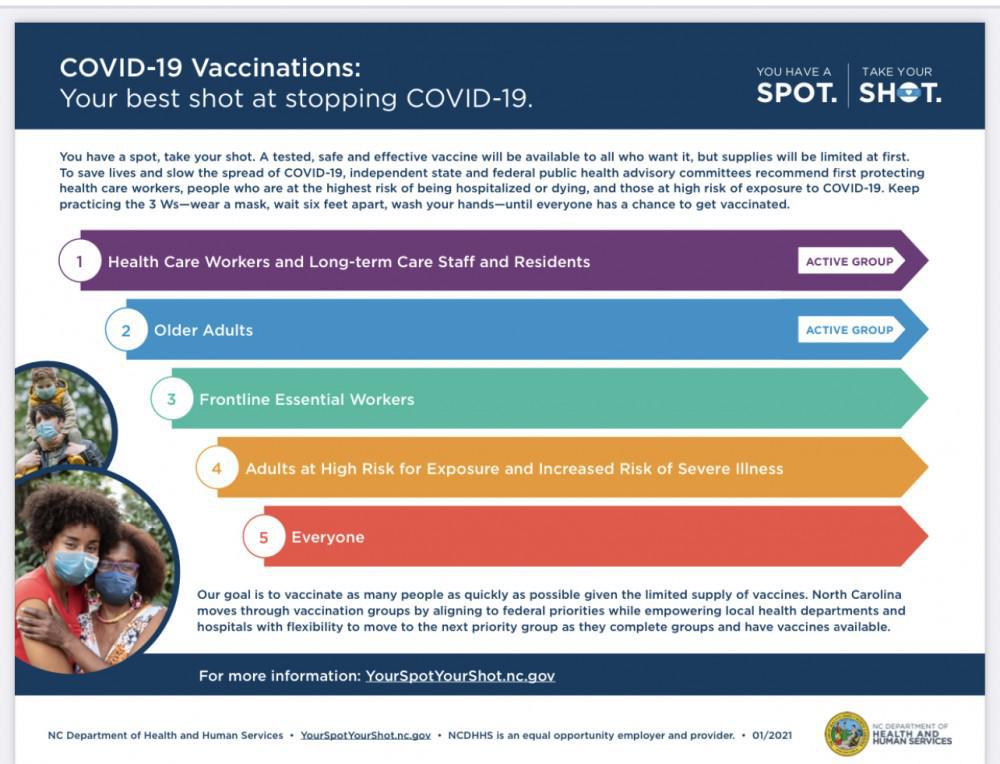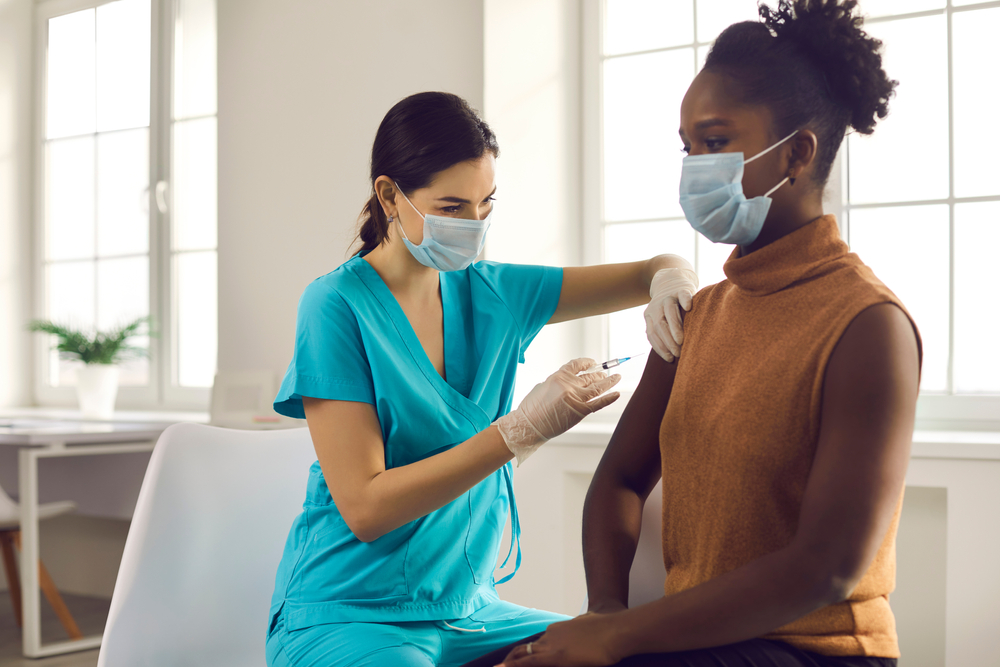Two vaccines for COVID-19 have been authorized for emergency use in the United States from Pfizer-BioNTech and Moderna. The U.S. Food and Drug Administration (FDA) has authorized the vaccine, and the CDC has recommended the Pfizer-BioNTech’s coronavirus vaccine for people 16 and older and the Moderna vaccine for people 18 and older.
In clinical trials, both vaccines proved to be greater than 94% effective in preventing people from getting seriously ill from COVID-19“across age, gender, race, and ethnicity demographics.” Over 70,000 people were included in the two trials.
Eventually, a vaccine will be available for everyone. For now, the supply is limited. The Centers for Disease Control and Prevention (CDC), through its independent advisory committee, has recommended the order in which people should receive the vaccination. Among the first: health care workers and residents of long-term care facilities. It will be up to individual states to decide the order in which they will administer the vaccine. They likely will follow the CDC recommendations. The next groups of people to be able to get the vaccine will be people over 75 and front-line essential workers.
The federal government is providing the vaccine to the American public free of charge.

Path to improved health
Both vaccines will require two doses, delivered by a syringe (a shot). The shots will be scheduled three-four weeks apart, depending on which vaccine is given. It is recommended that people get both shots from the same vaccine.
Is the vaccine safe?
The FDA has determined that the Pfizer-BioNTech and Moderna vaccines have met safety and effectiveness standards. Following rigorous clinical trials, the vaccines have shown no serious safety concerns or severe side effects. In general, the side effects from the vaccine, such as headache, fever, fatigue, and chills, have been generally mild to moderate and in trials lasted only a day or two. More people experienced these side effects after the second dose than after the first dose, according to the FDA. These symptoms are very common with vaccines and are a sign that the body is responding to the vaccine.
Why should I get the vaccine?
By getting vaccinated, you are reducing your risk of disease, hospitalization, severe complications, and even death. Getting vaccinated and reducing the risk of disease also helps prevent overwhelming the health care system.
Is it possible to get COVID-19 from the vaccine?
It is not possible to catch COVID-19 from the vaccines. They do not use live viruses. Instead, they are mRNA-based. This means the vaccine uses messenger RNA (ribonucleic acid) to tell your body to make a particular protein that will activate your immune system and protect you against the virus if you are exposed.
Can I still get COVID-19 after I get the vaccine?
There is a small chance that you could still get sick if you are exposed to the virus. The vaccines are not 100% effective but were shown to be greater than 94% effective in clinical trials. Also, if you are exposed to the virus just before or after getting the vaccination, you could still get sick before the vaccine has time to work. The odds are greatly in your favor, though, for not getting sick after receiving the vaccine.
If I’ve already had COVID-19, should I get vaccinated?
Health experts say that you should get the vaccine even if you’ve already had COVID-19. They believe the vaccine could provide stronger immunity, even for those who have had the virus. This is because coronaviruses often do not create absolute natural immunity in humans.
Do I still need to wear a mask and social distance if I’ve been vaccinated?
The vaccine was shown to prevent disease but has not been shown to prevent infection with the virus, so people who are vaccinated may still be able to spread it to others. Everyone will still need to wear a mask and practice physical distancing until a large section of the population has developed immunity, which may not be until late 2021.
Things to consider
Side effects from the COVID-19 vaccines are not severe. The most common include pain at the injection site, headache, fever, fatigue, and muscle ache. These side effects last only a day or two. The vaccines have shown no serious safety concerns.
People with severe allergies may not be able to get the vaccine; this does not include allergies to foods such as shellfish or peanuts. The CDC has published guidelines for getting the vaccine that includes three categories: proceed with vaccination, vaccinate with caution, and don’t vaccinate. Vaccinate with caution if you have a history of a severe allergic reaction to another vaccine (not including the COVID vaccines). Do not get the vaccine if you have a history of a severe allergic reaction to any component of the vaccines. As always, if you are unsure, check with your family doctor first.
If you are pregnant or nursing, consult your doctor before getting the vaccine. Vaccine clinical trials did not include people who were pregnant or nursing. (These types of trials rarely include participants who are pregnant or nursing because of the risk involved.) Your doctor will help you determine if you should take the vaccine or wait.
Questions to ask your doctor
- When will I be able to get the COVID-19 vaccine?
- Is there any reason I should not get the vaccine?
- Will the vaccine affect any underlying health conditions?
- Should I quarantine after I get the vaccine?
- Where can I get the vaccine?

